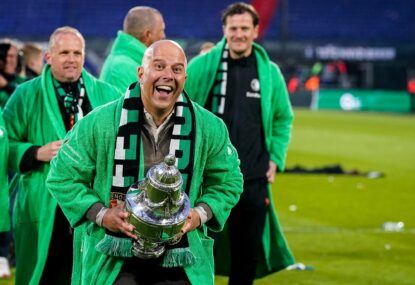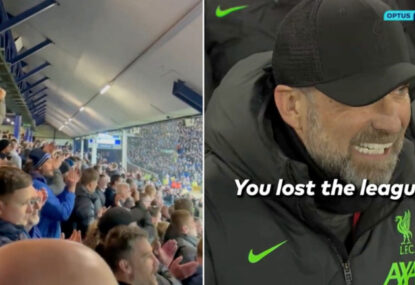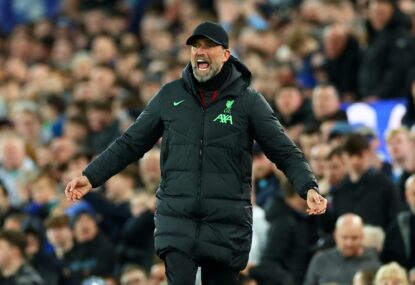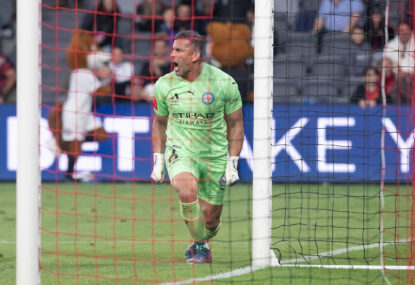The end of a major tournament is always accompanied by a tinge of sadness, as the narratives that have gripped us for a month fade from the present to treasured memories of the past.
Euro 2020 has been one of the most entertaining tournaments I have watched; there was joy, near tragedy, defensive calamity, new heroes and dreams that slipped away.
Following this tournament that plausibly could have never happened, I have reflected on four defining storylines from the event.
1. The tournament of own goals
Scoring an own goal is one of the worst feelings in the world, but an accepted occupational risk for any defender.
Somewhat comical for neutral observers, Euro 2020 was littered with 11 own goals, outnumbering the nine own goals scored across the previous 15 European Championships.
Germany had an interesting relationship with the phenomena. Losing to France in their opening group game 1-0 as Mats Hummels side-footed Lucas Hernandez’ cross on the half volley into the top corner of his own net, Die Mannschaft then became the beneficiaries of two own goals in their pulsating 4-2 win over Portugal.
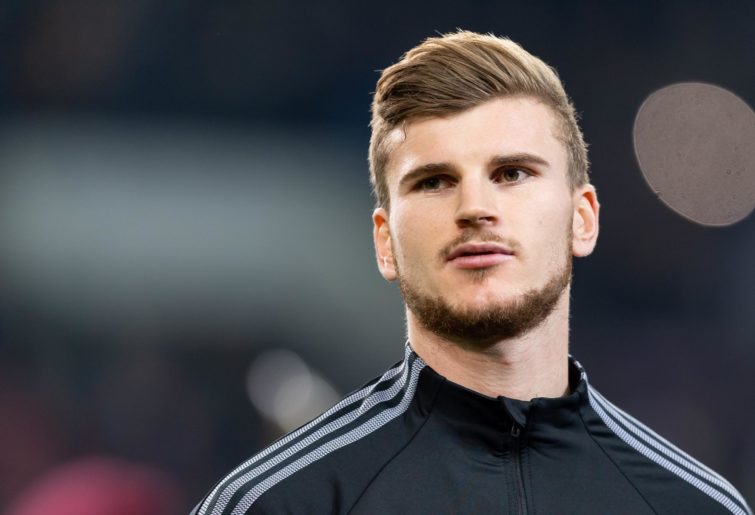
(TF-Images/Getty Images)
In the case of most own goals, such as those experienced by Germany, if the defender doesn’t touch the ball, the looming attacker will score, or, a defender or goalkeeper has been brutally undone by an unfortunate deflection off the post or another player.
However, at Euro 2020, some own goals were genuine howlers.
My honourable mention for the ‘worst’ own goal goes to goalkeeper Martin Dúbravka, who went from hero to zero in Slovakia’s final group game in which they required a result against Spain. The Newcastle United keeper somehow slapped the ball into his goal, rather than punching it over the crossbar 20 minutes after saving Alvaro Morata’s penalty.
Undoubtedly, though, the gold medal goes to Spain’s Pedri. No fault of his own, the teenage midfielder played a back pass to his goalkeeper Unai Simón, who inexplicably missed the ball, allowing it to roll into his net and gifting Croatia the lead in the Round of 16 tie.
Fortunately for Simón, Spain went onto defeat Croatia 5-3 after extra time in one of the games of the tournament, before proving his worth in the subsequent quarter-final, pulling off two saves in Spain’s shootout win over Switzerland.
2. Muller’s miss gives England real hope
Minutes after putting England in the lead in the Round of 16, Raheem Sterling gave the ball away to Germany’s Kai Havertz, who played Thomas Muller through on goal one-on-one with Jordan Pickford. Remarkably, the 2010 World Cup golden boot winner dragged his shot wide as his search for his maiden Euros goal continued.
The massive reprieve, which was followed by England’s second goal via the head of Harry Kane, allowed the Three Lions to break their hoodoo against Germany in major tournaments, winning their first knockout tie between the rivals since 1966.
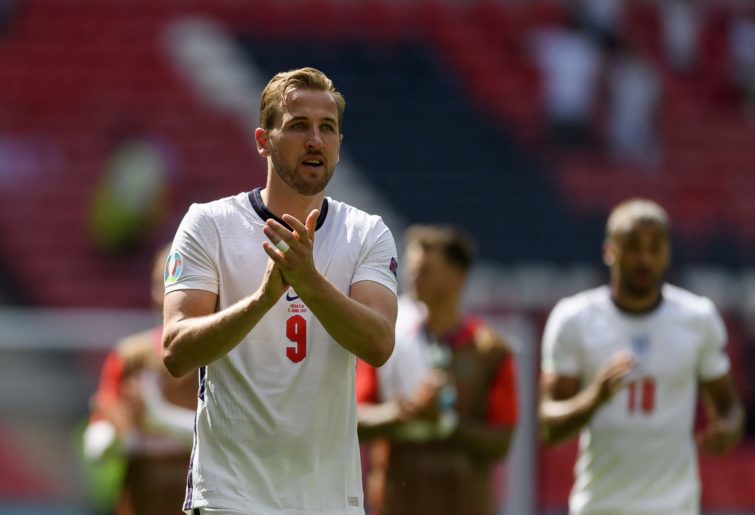
(Photo by Vincent Mignott/DeFodi Images via Getty Images)
Muller’s miss gave English fans hope that for once luck was on their side and fuelled the belief that ‘football was coming home’.
England’s good fortune would continue in the semi-final against Denmark when Sterling won a controversial penalty in extra time, which was taken by Kane and saved by Kasper Schmeichel but rebounded back to the Spurs man for a simple tap-in.
Alas, when it counted the most, luck would fall by the wayside for England as they lost to Italy on penalties in the final.
Unfortunately for England, ‘it’ didn’t come home this time, but they have an extremely talented and cohesive young team that could be a force well into the future.
3. Penalty shootout drama
There is no drama in the world tenser and more gut-wrenching than a penalty shootout. Euro 2020 had four, equal with 1996 for the most at a European Championships.
They are the ultimate test of dealing with insurmountable pressure. They can send giants tumbling, as we witnessed when the Swiss toppled the world champions France, cause agony for some and jubilation for others.
One man who rose to the occasion was UEFA’s Player of the Tournament, Gianluigi Donnarumma.
Possibly inspired by his captain Giorgio Chiellini’s confidence exhuming playfulness with Spain’s Jordi Alba before penalties in the semi, the Italian keeper, with his 1.96-metre frame seemingly filling the goal, guided his side to glory with saves in both the semi-final against Spain and final against England.
With his efforts, Italy became the first side to win two shootouts in the same Euros.
This was made more impressive by the fact that in both shootouts Italy missed first; Manuel Locatelli blazing his effort over the bar against Spain, and Jordan Pickford saving Andrea Belotti’s effort in the final.
Donnarumma’s ability to hold his nerve was best demonstrated in the final, when needing to make up for Belotti’s miss he held his ground as Marcus Rashford stuttered towards the ball hoping that the keeper would move.
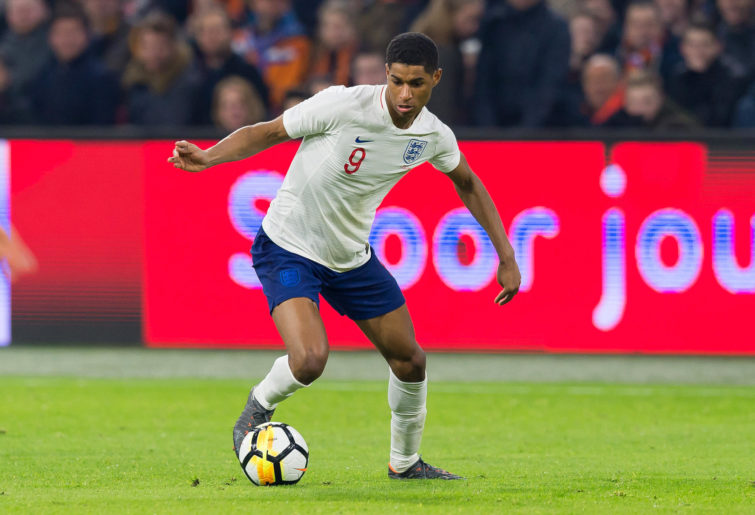
Marcus Rashford (Photo by TF-Images/Getty Images)
Standing still Donnarumma forced Rashford to make a late decision, which resulted in him hitting the post, flipping the momentum Italy’s way as they went on to win.
While Donnarumma celebrated, the unjust nature of penalties resulted in devastation for Rashford and his young teammates, Jadon Sancho and Bukayo Saka. With their whole careers ahead of them, hopefully this does not affect them too much.
The racist abuse that these three fine young men have received in the aftermath has been disgusting and unacceptable and has left a blight on what was otherwise a wonderful tournament.
However, it has been heartening to see the support from the majority of English supporters who have backed their heroes, especially the restoration of Marcus Rashford’s mural in Withington.
Spare a thought too for Spain’s Alvaro Morata, who possibly had the most turbulent tournament of any player at these Euros. Having missed a sitter one-on-one against Sweden and a penalty against Slovakia in the group stage, he then redeemed himself, scoring a sublime half volley to give Spain the lead against Croatia in extra time.
During the group stage, his manager Luis Enrique had backed the striker, stating that Spain would comprise of “Morata and ten others”, but he was then dropped ahead of the semi-final meeting with the eventual champions.
He came off the bench and redeemed himself again by scoring the equaliser but, seemingly inevitably, had his penalty saved by Donnarumma, which allowed Jorginho to slot home his penalty for Italy to make the final.
On a side note, Euro 2020 had an increased number of substitutes at the managers’ disposal, which some used to bring on specialist penalty takers in the dying minutes of extra time.
After seeing Rodri miss after coming on to take a penalty for Spain against Switzerland in the quarter-final, I got a funny feeling that something might go wrong when I saw Rashford and Sancho warming up.
Do these substitutions place extra pressure on players as their sole purpose in the match is to score a penalty, and will we see managers continue this ploy in the future?
4. Denmark
Denmark’s remarkable tournament began in the most unimaginable and harrowing way possible when Christian Eriksen was revived on the pitch after suffering a cardiac arrest at the end of the first half in their opening match against Finland.
The near-tragedy caused distress for fans across the globe and amplified how insignificant football can be in the grand scheme of life.
The leadership of Simon Kjær, being the first person to Eriksen’s aid before gathering his teammates to create a human wall to give Eriksen privacy from cameras was more heroic than any action with a football during the tournament.
Minutes after the worst moment of the tournament, my favourite happened as the Finish fans chanted “CHRISTIAN!” and the Danish fans returned with cries of “ERIKSEN!”, demonstrating the ability for the football community to unite together, and how important fans are after a year of empty stadiums.
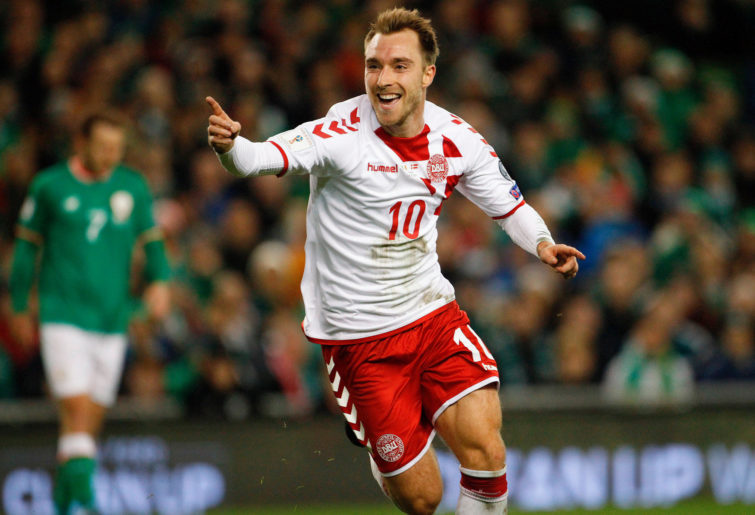
Christian Eriksen (AP Photo/Peter Morrison).
Understandably, keeper Kasper Schmeichel made an uncharacteristic error as Denmark lost to Finland on that sombre afternoon in Copenhagen, but the Danes were revitalised against Belgium with the inclusion of one of the finds of the tournament, Mikkel Damsgaard.
After a national outpouring of emotion when Yussuf Poulsen opened the scoring in the second minute, Damsgaard was influential in Denmark’s attacking assault on Belgium’s defence.
After such a brilliant team display, it seemed almost cruel that they happened to play against Kevin De Bruyne, who delivered arguably the best individual performance of the Euros to create one goal and score another, leaving Denmark on zero points and on the verge of elimination with one game left.
Damsgaard though found the top corner just before halftime against Russia, to set the Danes up on their way to a 4-1 victory with the aid of a shocking Russian back pass, a stunning long-range drive from Andreas Christensen and a tidy finish by fullback Joakim Mæhle to send them through to the knockout stage.
The Danes were now in full swing, scoring four again against the Welsh in the Round of 16 before defeating the impressive Czech Republic 2-1 to reach the semi-final, with the winner coming via a sublime outside of the foot cross by Mæhle for Kasper Dolberg to poke in.
The next obstacle in the way of repeating their 1992 victory was England at Wembley. The odds were against the Danes, but they started the game on the front foot, taking the game to their hosts.
The early momentum culminated in wonder boy Damsgaard striking his free-kick beyond the reach of Jordan Pickford on the half-hour mark to score possibly the goal of the tournament (it’s a close-run race between Damsgaard and Patrik Schick’s lob from halfway against Scotland for the Czechs.)
However, the fairytale wasn’t meant to be. The man who least deserved to score an own goal, Kjær, steered in Saka’s cross to bring the scores level. If he hadn’t touched it, Sterling would have almost certainly scored just 40 odd seconds after Schmeichel had denied the Man City winger from point-blank range.
As the game wore on, Danish legs began to drag and while they were unlucky to concede the penalty in extra time, they were ultimately outplayed by England on the night.
On football ability, Denmark was not the best team at the tournament, but they were the team that won our hearts.
While their moment of darkness showed football’s seemingly insignificance, their incredible run to the semi-final showed how football can bring people together, inspire others, bring wonderful joy and allow us to dream.
Overall, Euro 2020 was a fantastic tournament and one that football fans will long savour after a season-and-a-half of pandemic-affected competitions.
There are so many more interesting and unique stories that could be written about these European Championships, but they can be saved for another day.


































































































